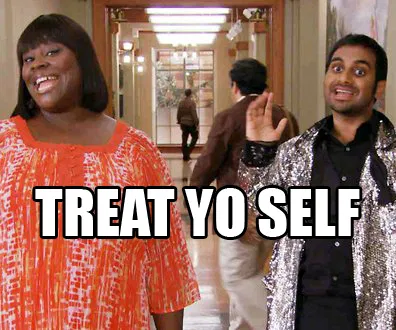Mental Health is arguably the most important element of an individual's overall health, and it is discussed the least. This topic is viewed as deeply personal and sensitive to most individuals. However, the best way to de-stigmatize it, is to talk about it.
According to the Oxford Dictionary, mental health is described as “a person’s condition with regard to their psychological and emotional well-being” (Lexico Dictionaries). This term encapsulates everything from state of mind to emotional intelligence in any situation. Mental health is an essential part of an individuals’ overall wellbeing and if not actively attended to, can really impact a persons’ day to day life. While good mental health is commonly mistaken as the absence of mental ill health, there are so many more intricacies and facets involved which will be discussed in this blog.
Mental disorders are typically the first thing to come to mind when discussing mental health. The image below depicts some of the most common disorders including depression, ADHD, anxiety, anorexia, OCD, and addiction. Such disorders have become increasingly more prevalent among today’s population, especially the youth. The added pressures and stress on children today have resulted in about 20% of adolescents being affected by depression by the time they reach adulthood (Dryden-Edwards, 2018). These numbers have been rapidly rising in the past couple decades, which is why it is more important than ever to be able to openly discuss mental health and take steps to de-stigmatize the topic as a whole. Whether you are an individual that actively struggles with mental health or not, it is a vital part of everyone’s life.

Most people are scared to share their mental issues with for they may face judgement or different treatment by the people around them. This can turn into a vicious cycle of hiding one’s mental problems, which will only make them increasingly worse and resolve in nothing. The good news is that today, there are plenty of resources available to people struggling with mental health. The best method is to seek professional help from an experienced and knowledgeable physician or therapist. A lot of symptoms of mental disorders can be healed or decreased with proper diagnosis and medication. In addition, there are plenty of hotlines available that can be found through just a quick internet search to put people in contact with professional help. If you or someone you know is exhibiting symptoms of serious mental disorders who are in need of help, be sure to reach out to one of these resources. While your efforts may not be appreciated in the moment, in the long run, it will be best for that individual. Other ways to combat mental health issues is talking to those around you whether that’s a family, friend, or peer. Revealing your deepest mental secrets may be a daunting task, but the best way to begin working on the issues is to be honest and open to the advice you may receive. As mentioned before, mental health should not only be thought of in terms of mental disorders as there is so much more involved.

Mental health is the accumulation of one’s mental state including emotional and psychological wellbeing. For some, the status of their mental health can change as quickly as a change of emotions. It is entirely possible to be triggered by some event, and that will alter the mental state of someone for the rest of the day, or several days to follow. The effects of mental health are different on everyone, which is a notion that should be taken into consideration by those surrounding affected people. Mental health is so personalized to every individual that there is no one fix for everyone, just as there is no one single stimulus that triggers a shift in their mental state. It is often difficult for the affected person to pinpoint exactly what changed their mental state, especially while actively feeling affected. The most important thing to remember is to be supportive of everyone and not to judge people for their mental issues, as they are extremely difficult to control.
For people who believe they don’t have serious mental health issues, it is still very important to take precautionary steps to keep their mental health in check. Getting ahead of the issue is always better than being overwhelmed later on. There are an infinite number of ways in which people can better themselves mentally but some popular methods are to remain active, exercise, eat healthy, and prioritize self-care. All of these play a significant role in one’s overall physical and mental health. As discussed in separate blog posts, keeping active releases endorphins into your body which is scientifically proven to boost one’s mental state. “Regular exercise can have a profoundly positive impact on depression, anxiety, ADHD, and more. It also relieves stress, improves memory, helps you sleep better, and boosts your overall mood.” (Helpguide.org, 2020). With more energy and a better outlook on life, people are more likely to implement a regular exercise routine into their life, which can really only be beneficial. In addition, giving your body the proper nutrition it needs, also aids mental health issues. However, disorders like anorexia and bulimia often inhibit people from being able to intake a healthy amount of food. Lastly, a trend begun by NBC’s popular sitcom, Parks and Recreation, encourages people to “treat yo’ self” whether that be taking a day to relax or buying an expensive item one normally wouldn’t (Schur, 2011). It is important to prioritize yourself as it greatly helps your mental state.

While this is just a quick look into the facets involved in mental health, hopefully it is helpful for both those affected by mental health disorders, but for people who may not consider themselves to be. We just want to remind readers that your mental health is extremely important and perhaps this inspired some to begin discussing openly discussing mental health in their everyday life.
Works Cited
Dryden-Edwards, Roxanne. “Teen Depression Facts, Treatment, Symptoms, Statistics & Tests.” MedicineNet, MedicineNet, 19 June 2018, www.medicinenet.com/teen_depression/article.htm.
“The Mental Health Benefits of Exercise.” HelpGuide.org, 16 Feb. 2020, www.helpguide.org/articles/healthy-living/the-mental-health-benefits-of-exercise.htm.
“Mental Health: Meaning of Mental Health by Lexico.” Lexico Dictionaries | English, Lexico Dictionaries, www.lexico.com/definition/mental_health.
Schur, Michael, and Greg Daniels. “Parks and Recreation: Pawnee Rangers.” Season 4, episode 4, 2011.